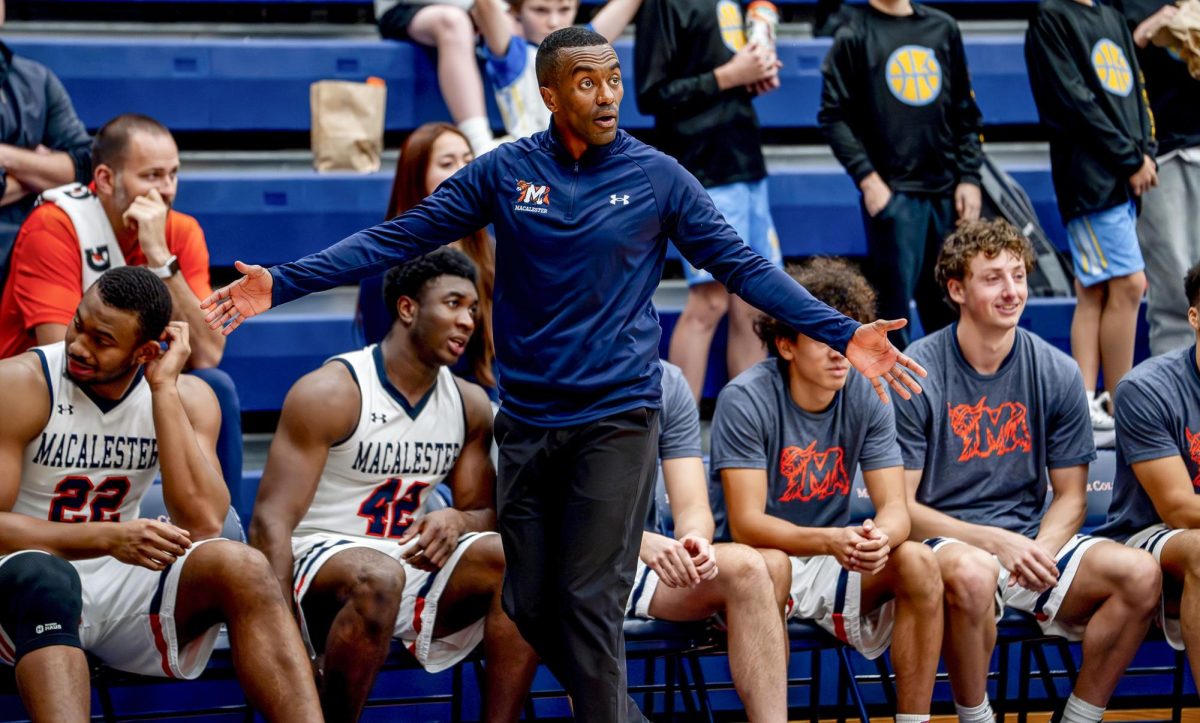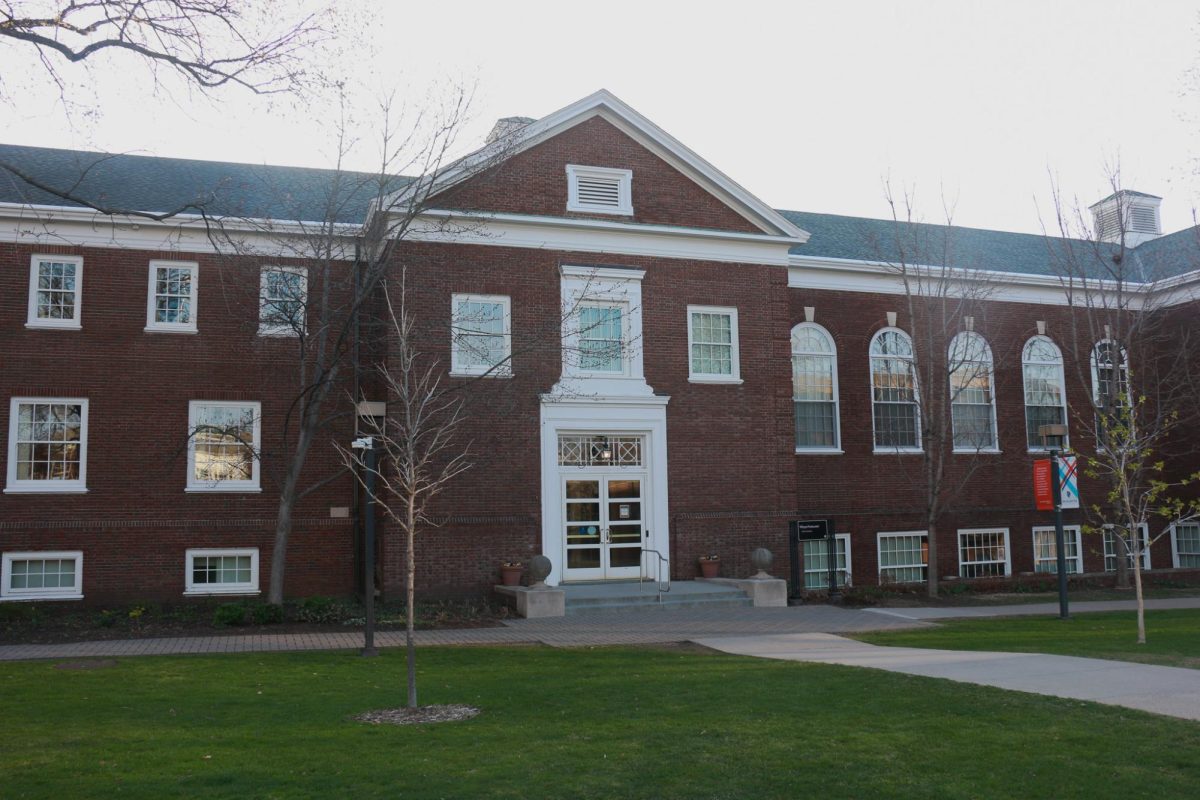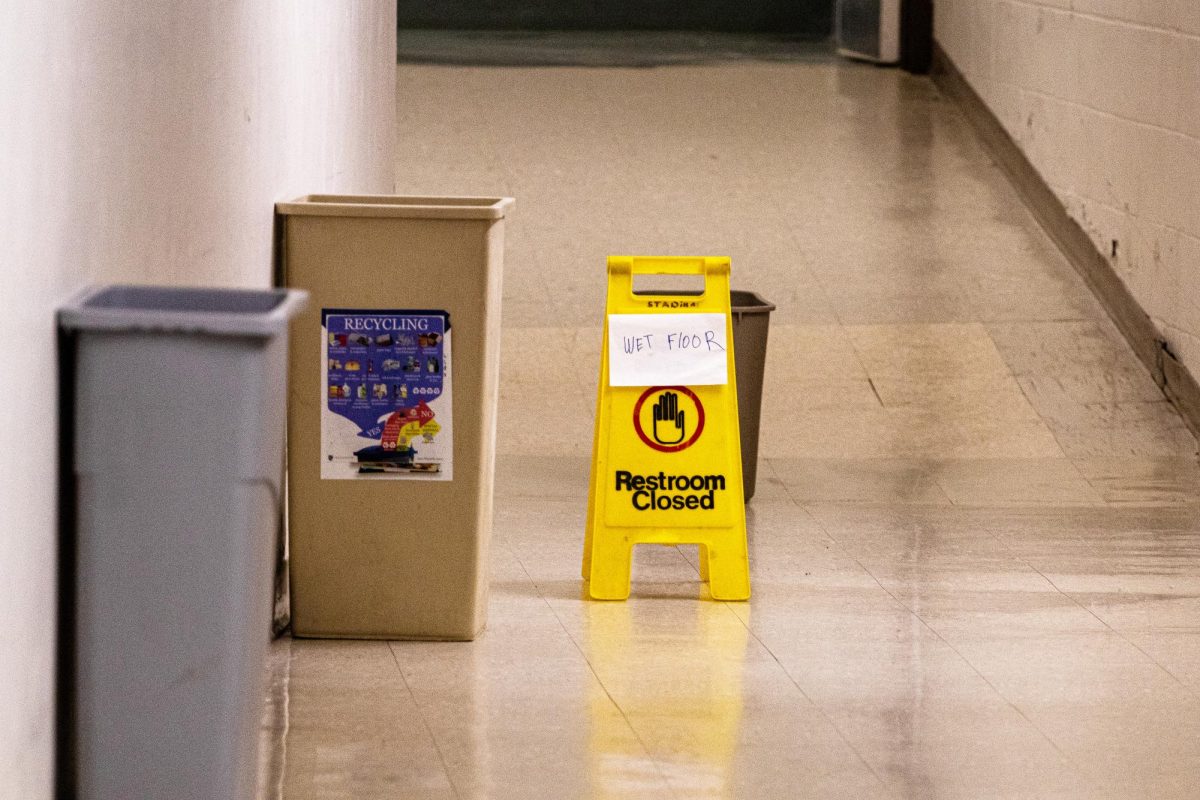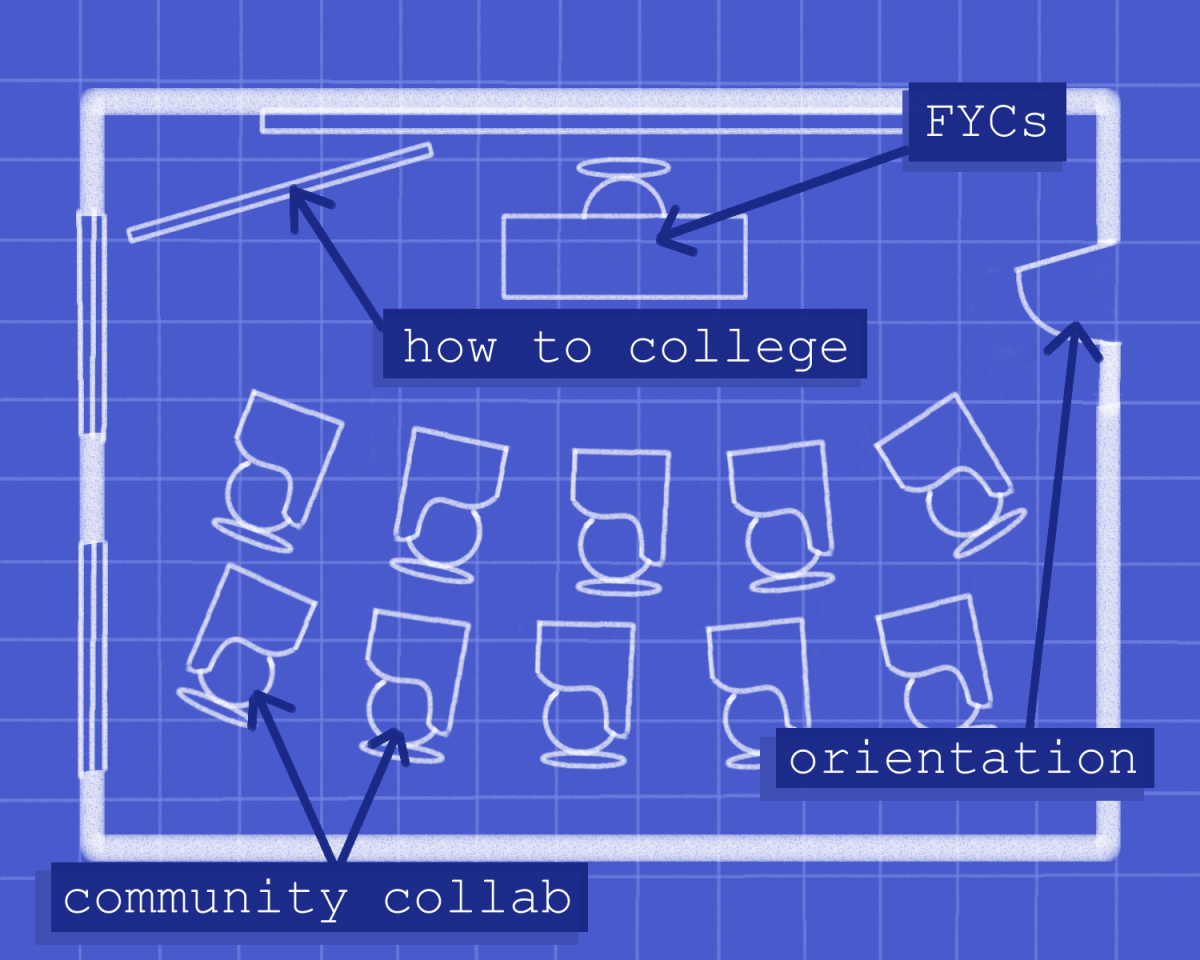In his almost 20 years of teaching at Macalester, Political Science Professor Paul Dosh has grown accustomed to following college policies with which he doesn’t agree. On October 13, 2022, all Macalester faculty and staff received an email notifying them that they were required to undergo a criminal background check. Dosh, despite disagreeing with the policy, eventually went through with it. He immediately wished he hadn’t.
“As soon as I completed it, I regretted it,” Dosh said. “The experience of filling out the criminal background check reminded me of how intrusive this process is and how staff, junior faculty [and] contingent faculty might feel very vulnerable. I felt like I had let down some of my colleagues [by] participating in the criminal background check.”
As of December 2023, all of Macalester’s staff and faculty have undergone the criminal background checks.
Macalester’s current background check policy requires all employees to complete a background check every five years. Consequences for not completing this screening process include potential termination of employment. Previously, Macalester only required one criminal background check as part of the initial hiring process.
Since its initial rollout in October 2022, faculty and staff have criticized the policy for its disproportionate impact on applicants and employees of color; they have also critiqued how faculty and staff were informed of this policy. The administration’s justification for the policy has not remained consistent over time. Both Provost Lisa Anderson Levy and Vice President for Administration and Finance Patricia Langer stated that this policy is essential for Macalester preserving liability, despite not providing any documentation for their claims. President Suzanne M. Rivera, on the other hand, cited the protection of student safety as her motivation for this policy implementation. 10 tenured faculty members refused to comply with this policy when it was reintroduced in September 2023, after its implementation was paused due to pushback.
Macalester introduced a non-recurring faculty background check policy in 2016 in its Employee Handbook, requiring that all new hires complete a background check before starting work. This screening includes a criminal history check, social security number validation and sex and violent offender registry check for the past seven years. The criminal history check includes any prior convictions, charges or pending charges, but it does not include arrests or other law enforcement interactions that did not result in charges.
Unlike new faculty hires, new staff hires have been background checked for two decades.
In October 2022, Macalester changed this policy to require all employees complete a background check every five years. The Faculty Advisory Council (FAC) and Staff Advisory Council (SAC) did not receive prior notice of this change, and faculty were first notified of it by an Oct. 13, 2022 email from Langer. The email stated that employees who had worked for Macalester for more than five years would receive a disclosure and authorization form from Orange Tree Employment Screening in their emails, and that employees should complete this form within seven days.
Carrying out a background check for every Macalester employee costs the college a little more than $2,300 in total, according to Langer in a Nov. 11, 2022 record check forum with FAC and SAC.
Noncompliance with the policy would be considered an employee violation that would be followed by disciplinary action, including possible termination of employment.
Many faculty and staff were displeased with this; they disagreed with the process through which the policy was rolled out and the racially unequal effects it could have. By Oct. 16, 2022, three days after the initial announcement, 65 faculty and staff signed a letter summarizing their concerns and calling on the administration to put the policy on hold to allow for further discussion. On Oct. 19, 2022, Langer sent an email announcing that administration had paused the policy.
But it didn’t remain paused. On Sept. 28, 2023, Provost Lisa Anderson-Levy sent a letter to faculty, informing them that “an updated criminal background check process” had started on Aug. 1 for staff and would start in early October for faculty. She also told the faculty that 100% of staff had completed their criminal background checks.
All the non-tenured staff that The Mac Weekly reached out to for an interview request declined to comment. Many named concerns about employment security as their reasoning.
At a faculty meeting on Oct. 10, 2023, Chair and Professor of Sociology Erik Larson represented
Macalester’s branch of American Association of University Professors (AAUP), an organization dedicated to maintaining academic freedom and shared governance in higher education. Nine days prior to the meeting, AAUP had released a letter addressed to faculty in which they expressed their concerns regarding the implementation and the potential harmful impacts of the criminal background check policy. Larson echoed these critiques presented in the AAUP letter, encouraging other tenured professors to voice their concerns regarding the policy. It was at this meeting where multiple tenured faculty members refusing to comply first publicly acknowledged their noncompliance. 10 of them decided to cooperate in their fight against the policy. Among these faculty members were Larson, Anthropology Chair Arjun Guneratne, American Studies Chair Karin Aguilar-San Juan and Religious Studies Professor William Hart.
Inconsistent justification
Since the new background check policy was first announced, the administration has justified it by saying that insurance companies require it; without it, Macalester will lose its liability insurance.
“There was this requirement for all employees, not just faculty, to have background checks,” Anderson-Levy said at the Feb. 15, 2024 Macalester College Student Government (MCSG) meeting. “We needed it in order to have liability insurance on campus, which is really important, especially in places where there are congregate folks living on campus.”
Langer also used this justification during the Nov. 11, 2022 event.
“Travelers [Travelers Companies, Inc.] — they carry our primary liability [and] employee benefits — is requiring this record check process,” she said, according to a real-time transcription made by an attendee of the event. “[We filled out the warranty form] and Travelers said you have to change your practices or we will no longer continue to provide coverage.”
The administration has never produced proof that the insurance company mandated this coverage.
“We don’t have any evidence that this was ever a requirement,” Larson said. “It would be pretty easy to produce something that said ‘you need to do this to get liability insurance.’ Insurance companies are not in the practice of having hidden requirements.”
What the administration has produced is parts of an insurance form that they filled out in Summer 2022. This form, which administrators sent to FAC several months after FAC’s initial request for it, asked yes-or-no questions about a variety of practices. The form asked questions about background checks, such as whether all current employees and volunteers have been checked and how often background checks are obtained, but it did not say that the insurance company required background checks. Rather, through the form, Macalester provides information about itself that helps insurance providers determine whether to continue to offer coverage, whether a continuing offer would be contingent on any policy changes and how much coverage will cost.
However, nothing on the form said that the college will lose its insurance without this background check policy. This contradicts one of the administration’s central claims.
When the 10 tenured faculty eventually decided to undergo background checks, it was in large part because they did not want to be responsible for the college losing its insurance. They didn’t find out that insurance never required background checks until a Dec. 8, 2023 meeting in which Rivera told them why she implemented the policy.
“What we discovered in filling out that questionnaire was that … although all the staff employees had background checks, not all the faculty employees had had background checks,” Rivera said in an interview with The Mac Weekly. “Once we discovered that oversight, we determined that a new policy would be really important in order to protect student safety and reduce institutional liability.”
Rivera never said that insurance mandated background checks.
“And that’s how we had a criminal background check: because the President wanted it,” Guneratne said. “Not because insurance companies wanted it. Not because insurance brokers wanted it. The President wanted it, but this was never told to either the faculty or the staff. In all that time from the initial rollout of the policy in 2022 to the time we met with the President at the end of 2023. That was a completely different explanation. So this entire policy is the whim of the President.”
Rivera shared that protecting student safety was the most important reason she and other members of the Senior Leadership Team decided to implement this comprehensive background check policy.
“The fact that there are concerns about inequality in our criminal justice system does not, for me, override our moral obligation to do all we can to keep our students safe,” Rivera said. “It’s important for us to take the reasonable steps that we can, especially because we’re responsible for the wellbeing of young people, some of whom literally are minors, to make sure that we don’t have any staff or faculty who’ve been convicted of the kinds of crimes that would make us worried about student safety.”
Some faculty are offended both that Rivera sees them as a threat and that she sees Macalester students as children.
“My observation on [this] is that the college has [in recent years] been infantilizing students,” Guneratne said. “There is this whole discourse about students as people who have to be protected from faculty and staff, and who are, essentially, not adults.”
Comparison to other colleges
The administration has pointed to issues in the insurance market following high-profile felonies perpetrated by staff at other universities as further justification for this policy.
“While these large universities seem far removed from Macalester, we all swim in the same insurance market, and these scandals have dramatically impacted our rates and options for liability insurance carriers and coverage,” Langer wrote in an Oct. 19, 2022 email to faculty and staff. “Following each of these scandals, more insurance providers have ceased to underwrite liability insurance for institutions of higher education.”
Langer also expressed her fear that a possible scandal, such as the Jerry Sandusky and Larry Nassar sexual assault cases, could jeopardize Macalester’s reputation. Her email did not mention student safety. In fact, she acknowledged background checks’ shortcomings in predicting crimes.
“While background checks do not predict bad behavior, in the event of a public scandal, having clear mitigation policies and procedures in place provides a better footing than our current circumstance,” she wrote. “Following the Nassar revelations, there were reports of an 8.3% decline in applications to Michigan State University. Although we are not Michigan State, we will be facing the impacts of fewer college-aged students in the coming years and a public scandal could negatively impact our ability to recruit and retain students.”
However, the tenured faculty’s investigation undermined background checks’ efficacy and relevance as a response to large sexual assault scandals, finding that even Penn State after the Jerry Sandusky scandal does not have background check policies that are as extreme as Macalester’s. Rather, the average college simply conducts a background check before hiring.
In addition, Guneratne pointed out that neither Sandusky nor Nassar had criminal histories. A criminal background check on either man would have turned up absolutely nothing; it would not have prevented the assaults they committed. Rivera said that background check policies such as these are standard practices in K-12 learning institutions and in higher education. Although most elementary and secondary education institutions employ background checks, a Mac Weekly investigation revealed that Macalester’s background check policy is, in many ways, not aligned with its peer institutions.
“We decided to do this regardless of what other [colleges] were doing because we felt like it was a moral obligation of ours to protect our students,” Rivera said. “When we found out that some faculty had concerns about doing criminal background checks, there was some research done to look at the websites of other institutions and we found that a variety of them do felony background checks.”
Compared to Macalester’s peer institutions, the college’s employee background check procedure conforms to industry standards in some ways; almost all of Macalester’s peer institutions publicly share that they conduct criminal history screenings as part of their hiring process. However, Macalester’s current policy deviates from the standard by requiring these screenings to be completed every five years.
The Mac Weekly was able to access the employee background check policy for 25 of Macalester’s 40 peer institutions; only one other college with a publicly available employee background check policy, Bucknell University, states that they require background checks on a recurring basis. A similar fact-check done by tenured faculty who refused to sign on yielded similar results.
Bucknell University does not conduct recurring checks on employees who only interact with prospective and current students. Employees tasked with caring for or supervising minors, however, must complete background checks.
Davidson College does not require that all employees repeat their background screening after a set number of years, but does have a clause allowing the college to conduct background checks on employees on a “periodic, selective, random or rotating basis.
Some colleges, including Reed College, Amherst College and Middlebury College, only require potential hires to complete criminal background checks if their positions require certain responsibilities, like interaction with children. Reed and Amherst both specify that positions that would require an employee to interact with only college students and prospective students are not among these positions. Many colleges’ policies differentiate prospective and current students from children.
Compared to the 40 schools in its peer group, Macalester is the only college to have a publicly available policy that mandates a recurring criminal history check for all its employees, regardless of whether their work involves interaction with minors.
Racially unequal consequences
Opposition to this policy is based in large part on the racially unequal consequences it may have.
“It is just a fact of life in this country that Black communities in particular, but many other communities [too], are disproportionately policed,” Hart said. “It’s not that crime is being committed at higher levels; they’re disproportionately policed from every stage of the criminal justice system from stop to incarceration. [This] means that wherever you look for applicants for any kind of job, you’re going to have a higher percentage of persons from those populations who have [had] an unhappy interaction with the criminal justice system.”
Black people in the Twin Cities are incarcerated at 11 times the rate of their white counterparts, according to the NAACP’s Twin Cities Economic Inclusion Plan.
Criminal records checks also have error rates as high as 30%. These rates are especially high in areas with greater racial disparities in criminal punishing, according to Larson, who cited a study by Wells et al.
The existence of these racial disparities means that Black and other marginalized applicants are often harmed more greatly by criminal background checks — not because they are more likely to commit crimes, but because they are more heavily criminalized by the justice system.
“Erecting and maintaining barriers for those who have been charged or convicted contributes to racial inequalities to such an extent that it has reversed many civil rights gains,” Macalester’s chapter of AAUP wrote in a document entitled “Why criminal background checks are bad policy,” which AAUP emailed to Rivera, Langer, Anderson-Levy and other administrators on Oct. 16, 2022.
“You could say [policies like] this [are] the way that white supremacy manifests itself in institutions in this country,” Guneratne added. “It’s not because there are people on the lawn burning crosses or running around in white hoods. It’s because, from a purely administrative standpoint, you have these rules and regulations that appear to be neutral. But in terms of actual practice, because of the way society treats people in different ways based on their ethnicity and their race and so forth, these supposedly neutral and benign policies actually have a negative consequence.”
The criminal justice system’s disparate racial impacts led the Minnesota Human Rights Commission to qualify how it believes background checks should be used.
“[It suggests that employers] use a great deal of discretion in how [they] utilize the legal facility to conduct criminal background checks,” Guneratne explained.
Problems with procedure
Aguilar-San Juan, one of the 10 members of tenured faculty who did not sign off on the screening, explained that they were not particularly concerned with the background check policy until Oct. 2023 when they, along with the rest of faculty that had not yet signed up for the background checks, started receiving notifications and reminders to sign up for a background check.
These reminders included both emails and text messages that the faculty would receive on their personal phones. Aguilar-San Juan notes that when they began receiving phone texts, they realized that they had to speak up.
“This is what put us over the edge. [The phone texts] were coming at [a] very strange time. They were automated obviously, but they were coming at like 5:13 in the morning. It was almost [like] some kind of harassment.” Aguilar-San Juan said.
According to Aguilar-San Juan, the administration later admitted that the use of personal phone numbers was a mistake, but at that point, the 10 faculty members were determined to use their position granted by their tenure to fight further against the policy.
“What is the point of tenure if you don’t speak up when you can?” Aguilar-San Juan asked.
The procedure through which the administration implemented the policy was one of the main reasons why the 10 decided to not comply. The administration introduced the changes to the policy through the Employee Handbook, which is managed by the Employment Services Department. Since the Employee Handbook is an advisory document that is not legally binding, the content of it can be changed at any time. Macalester also has a Faculty Handbook, which is managed by the provost. The Faculty Handbook is, unlike the Employee Handbook, legally binding and changes can be implemented in it only with the approval of the faculty as it is stated in Article I, Section 1-e. The faculty was not consulted on the implementation of recurring criminal background check policy and so many interpreted it as a violation of the Faculty Handbook.
“It was, in the opinion of many of us, very irregular, if not an outright violation of the provisions of the Faculty Handbook, regarding how policies that govern the faculty should be introduced,” Guneratne said.
When this argument was brought up with the administration, the 10 were not met with a clear answer. Instead, the admin’s response to the backlash against the background check policy seemed threatening and convinced some of the faculty members to sign onto the policy in fear of their position.
“I can’t put intent in [the administration’s] words, but they moved forward with words and actions that lead many faculty who are tenured, who’ve been here as long as I have or longer [to believe] that their job is in danger, or that their health care was in danger or that something about their status at the college was in danger.” Aguilar-San Juan said. “So that was very indicative: longtime faculty feeling that in some way, the admin does want to revoke something and will use this as a tool to deny employment.”
Who can Mac hire?
Macalester’s background check policy does not state that the college cannot hire someone with a criminal record. Instead, the college will consider the frequency and nature of an applicant’s offense, the time since they were convicted, the extent to which they have completed their sentence or other remediation, and the relevancy of their conviction to the job for which they have applied when evaluating background check results.
“Macalester reserves the right to rescind an offer if the nature of the convictions is inconsistent with seeking to provide a safe learning and working environment for its students and employees; or, it possibly impugns the reputation of the College; or, relates significantly to the duties and responsibilities of the position,” the policy says.
Although the policy states that criminal history check includes pending charges, Rivera told The Mac Weekly that the college will only examine felony convictions; she attributed the inclusion of pending charges in screenings to Orange Tree Employment Screening, Macalester’s third-party background check vendor.
“I feel like the fact that we are limiting our background checks to looking at whether someone was convicted of a felony is keeping it pretty narrow,” Rivera said. “And it is now possible for us to know with certainty that none of the college’s current employees were convicted of felonies.”
Rivera later explained that Employment Services may “be concerned about” some arrests resulting in charges, but that “the background check process is built around our obligation to take action when there’s a felony conviction.”
Minnesota has certain protective measures, such as the Ban the Box law, that limit when employers can ask potential hires about their criminal history.
Macalester’s chapter of AAUP published a statement on their concerns about the background check, highlighting the legal limitations of how Macalester uses background check reports. Their statement cites Minnesota Statute 181.981, which prevents an employee having been convicted of previous charges from being used as evidence of liability against the institution in some cases. Simply put, the statute protects employers from being held liable for an employee’s past charges that did not result in convictions.
Minnesota Statute 181.981 also states that an employer cannot be held liable for an employee’s actions if an employee holding a certain position “did not expose others to a greater degree of risk than that created by the employee or former employee interacting with the public outside of the duties of the position or that might be created by being employed in general.” In other words, if the employee’s position did not particularly enable them to allegedly commit any misconduct or crime they’ve been accused of, their employee also cannot be held liable.
This statute does not prevent Macalester from conducting criminal record checks, but it does create liability protections for the college. However, some professors worry that applicants with a criminal record will simply not be hired.
“The concern is that a policy that [reads] ‘we may not hire somebody’ becomes one that people interpret as ‘we should not [hire somebody] because they are risky,” Larson said.
Looking forward
Even though they have undergone background checks, the tenured faculty continue to fight against the policy, striving for a less extreme and more inclusive version.
Many of the faculty who fought against the background checks hope that, if the policy is not rescinded, the frequency and intensity of background checks will at least decrease. For instance, some professors hope that background checks can occur just at the time of hire, and that the amount of information included in the checks can vary on a sliding scale the way it does for administrative positions.
Faculty also want the college to focus on the things that truly keep a campus safe.
“Even if there were something that might cause some elevation of risk, there are ways to mitigate risk short of terminating or not hiring somebody,” Larson said. “It is more inclusive to find ways to accommodate people [of] varied backgrounds.”
Members of the group of 10 tenured faculty believe that there are better ways to increase safety.
“The most important thing is that somebody reports [safety violations] and those reports are taken seriously,” Aguilar-San Juan said. “That’s how safety happens.”
Macalester does implement other safety polities, including a sexual harassment and misconduct training for employees.
All in all, professors hope to increase safety in a way that benefits communities and the college itself.
“I don’t know that we increase security by excluding people,” Larson said. “We increase security by creating situations where people are involved [and] watching out for each other [and] where we decrease the types of things that lead to violations. There are ways … to guide the college to take [actions] to bring people who both would benefit from having employment and who the college could benefit from employing.”
Dosh explained that Macalester, in recent years, has started to improve its work with incarcerated communities. He has seen an increased number of students with incarcerated or formerly incarcerated family members, and the 2019 International Roundtable theme was mass incarceration.
“[As such,] it strikes me that a criminal background check is moving in the wrong direction,” Dosh said. “Given the profound problems of mass incarceration here in Minnesota, I think a guiding principle for us [should be,] ‘how can we minimize Macalester’s participation and reinforcement of these unjust structures?’”
















Adriana Saso-Graves • Apr 29, 2024 at 6:39 pm
Fascinating that they have such a vested interest in this when only a couple of years ago it was revealed that due to high turnover in the Title IX Coordinator role, there was information lost about previously filed cases on campus, resulting in students who had been reported to Title IX to become RAs, win awards, etc. “Student safety” my ass, Suzanne. Seems more and more that there is a bully at the pulpit.
Not to mention Macalester as an institution also recently offered to bail out students for participating in protests, but cowers behind the “need” to independently evaluate the relevance and nature of someone’s legal history and how it could impact their ability to do their job. They can’t even say which crimes or kinds of legal issues could bar them from employment, that could very well include protesting. Who knows?!
Not that Macalester pays its staff or associate faculty enough to hire decent representation if they ever did have a run-in with the law for some reason or another, unless you’re, I don’t know, the President. Just another thing Mac doesn’t have money for I guess. I suppose background checks do become more important when you can’t seem to retain faculty. I wonder why….
Catherine K • Apr 26, 2024 at 11:30 am
Thank you for this really essential reporting!
James B Stewart • Apr 27, 2024 at 4:27 pm
Dr Guneratne picked the perfect adjective to describe Administration policy toward faculty and students infantilizatization. Let me add “condescending” and”lacking in candor” And what’s worse, it appears that only a couple liberal arts colleges of all those comparable to Mac. treat them this way– I’ve been checking with colleagues teaching in those places. They are stunned to learn what going on here-